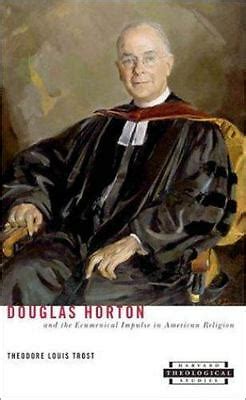A Quote by Douglas Horton
Change occurs in direct proportion to dissatisfaction, but dissatisfaction never changes.
Quote Topics
Related Quotes
Whether we eat, sleep, work, play, whatever we do life contains dissatisfaction, pain. If we enjoy pleasure, we are afraid to lose it; we strive for more and more pleasure or try to contain it. If we suffer pain we want to escape it. We experience dissatisfaction all the time. All activities contain dissatisfaction or pain, continuously.
For paradise we long. For perfection we were made...This longing is the source of the hunger and dissatisfaction that mark our lives...This longing makes our loves and friendships possible, and so very unsatisfactory. The hunger is for...nothing less than perfect communion with the...one in whom all the fragments of our scattered existence come together...we must not stifle this longing. It is a holy dissatisfaction. Such dissatisfaction is not a sickness to be healed, but the seed of a promise to be fulfilled...The only death to fear is the death of settling for something less.
Change is the end result of all true learning. Change involves three things: First, a dissatisfaction with self - a felt void or need; second, a decision to change to fill the void or need; and third, a conscious dedication to the process of growth and change - the willful act of making the change, doing something.
It seems to me that the chief thing about a woman - who is much of a woman - is that in the long run she is not to be had... She is not to be caught by any of the catch-words, love, beauty, honor, duty, worth, work, salvation - none of them - not in the long run. In the long run she only says Am I satisfied, or is there some beastly dissatisfaction gnawing and gnawing inside me. And if there is some dissatisfaction, it is physical, at least as much as psychic, sex as much as soul.






































